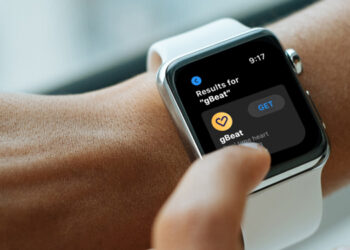
The trackers evaluated included the Nike+ Fuelband, Fitbit Ultra, Jawbone UP, BodyMedia FitCore and the Adidas MiCoach. Jamal Thruston, a personal trainer at Baptist East Milestone Wellness Center in Louisville, Kentucky, shared his thoughts on the study and its applications in health clubs today.
CS: Despite many trackers being inaccurate when tracking caloric expenditure, do you believe they’re still good weight loss tools?
JT: Although fitness trackers may not be very accurate, it’s good to be aware of things. For example, a scale isn’t always accurate, but we still use that as a measurement tool because it’s good to have that awareness. It makes our jobs easier as fitness professionals because we can look at roughly what they’re doing and help them make stronger goals in the future.
CS: For those looking to lose weight, would you recommend they seek the help of a fitness professional, and not just rely on a tracker?
JT: Yes, absolutely. For example, I recently had clients who thought it was okay to essentially starve themselves to lose weight. Fitness tracking devices may not help you become aware of proper ways to lose weight — through eating healthier and working out the right ways. Trackers will definitely not be taking the place of a trainer or dietitian any time soon — probably never.
CS: What are some other examples of what fitness professionals can do, that a tracker can’t?
JT: I have clients who say, “This fitness tracking app said I would be here in so many weeks.” But our body isn’t that systematic. You’re not going to lose exactly two pounds a week every week, unless things are just going really well for you. It’s up to a fitness professional to explain that to them, show them what these numbers mean, and that some of these numbers aren’t as truthful. It’s very complex and [members] doing that stuff by themselves is a dangerous game.
CS: Overall, what are your thoughts on fitness trackers?
JT: They’re great tools, and as they get better, they’ll even be more [useful]. I love it when people who have them come up to me with excitement. They’ll say, “Oh, I walked 10,000 steps today instead of 400.” It excites them, so these tracking apps and devices are getting people re-motivated and re-engaged in the world of health and fitness, and that by itself is amazing.
For the results of ACE’s full study, click here.
By Rachel Zabonick











